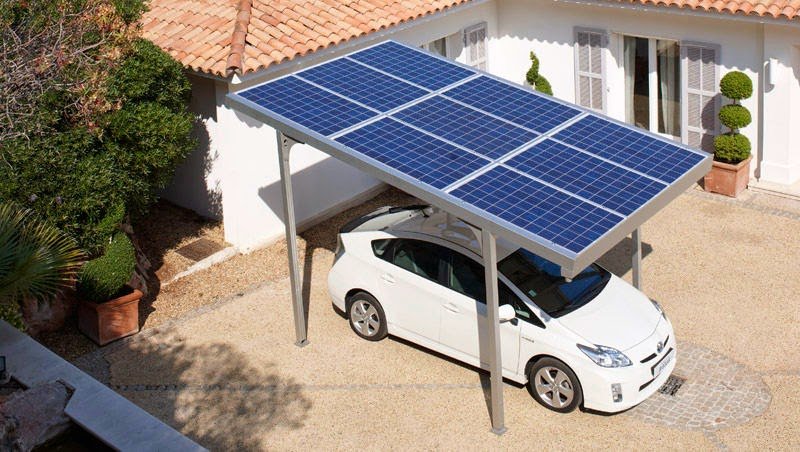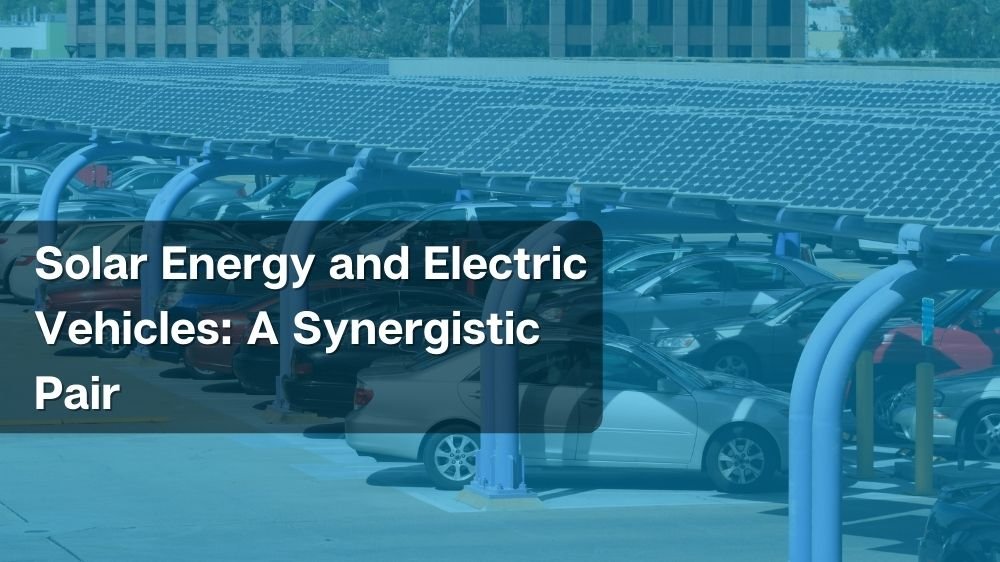Introduction
In the pursuit of a sustainable future, the combination of solar energy and electric vehicles (EVs) has emerged as a powerful duo. Both technologies have gained significant traction individually, but when integrated, they form a synergistic partnership that holds the potential to revolutionize transportation while reducing our carbon footprint. In this technical blog, we will explore how solar energy and electric vehicles complement each other, the benefits of this pairing, and the challenges that need to be addressed for widespread adoption.
Harnessing the Power of the Sun
Solar energy, derived from the sun’s radiation, is one of the cleanest and most abundant energy sources available on Earth. Photovoltaic (PV) cells, commonly known as solar panels, are designed to capture sunlight and convert it into electricity. These panels are becoming increasingly efficient and cost-effective, making solar energy an attractive choice for both residential and commercial applications.
Advantages of Solar Energy
- Renewable and Sustainable: Solar energy is an infinite resource, as the sun is expected to shine for billions of years. This means that as long as the sun is shining, we can generate electricity.
- Reduced Carbon Emissions: Solar power generation produces little to no greenhouse gas emissions, making it a key player in combating climate change.
- Energy Independence: By generating electricity on-site, individuals and businesses can reduce their reliance on traditional energy sources and gain energy independence.
- Lower Energy Costs: Solar panels can significantly reduce electricity bills over time, providing a return on investment for homeowners and businesses.
- Grid Resilience: Distributed solar installations enhance the resilience of the electrical grid by reducing the risk of blackouts during peak demand.
The Electric Vehicle Revolution
Electric vehicles have made remarkable progress in recent years, with major automakers investing heavily in their development. EVs rely on electricity stored in batteries to power an electric motor, eliminating the need for internal combustion engines and fossil fuels.
Benefits of Electric Vehicles
- Zero Emissions: EVs produce no tailpipe emissions, reducing air pollution and mitigating the health hazards associated with traditional vehicles.
- Energy Efficiency: Electric motors are highly efficient, converting a significant portion of the energy from the grid into motion.
- Lower Operating Costs: EVs have fewer moving parts and require less maintenance than internal combustion engine vehicles, resulting in lower operating costs.
- Reduced Noise Pollution: Electric motors operate quietly, contributing to quieter and more peaceful urban environments.
Synergy: Solar Power Meets Electric Vehicles
When solar energy and electric vehicles are combined, their synergistic effects become apparent. Here’s how:
- Clean and Sustainable Charging
Solar panels can be installed on rooftops, carports, or even integrated into the vehicle itself, enabling EV owners to generate their electricity. This clean energy source ensures that EVs are charged with minimal environmental impact, further reducing their carbon footprint.
- Energy Resilience
Solar-powered charging stations provide an additional layer of energy resilience. Even during power outages, solar panels can continue to generate electricity, allowing EV owners to charge their vehicles and potentially power their homes.
- Cost Savings
Solar-powered EV charging can significantly reduce the operating costs of electric vehicles. By generating their electricity, EV owners can offset the cost of charging, making EVs an even more cost-effective transportation option.
- Grid Stabilization
Solar-powered charging can help distribute energy demand throughout the day, reducing the strain on the electrical grid during peak hours. This grid-balancing effect contributes to a more stable and reliable energy infrastructure.
Challenges and Considerations
While the synergy between solar energy and electric vehicles offers numerous benefits, several challenges need to be addressed:
- Initial Cost: The upfront cost of installing solar panels and EV charging infrastructure can be a barrier for some consumers, despite long-term savings.
- Storage and Grid Integration: Efficient energy storage solutions and grid integration are crucial to ensuring consistent access to clean energy, especially during cloudy days or at night.
- Infrastructure Development: Widespread adoption of solar-powered EV charging infrastructure requires significant investment and regulatory support.
Range Anxiety: EVs still face range limitations compared to traditional vehicles, although this is improving with advancements in battery technology.
Conclusion
Solar energy and electric vehicles are indeed a synergistic pair that holds the promise of a more sustainable and environmentally friendly future. As technology continues to advance and economies of scale are realized, the integration of these two technologies will become increasingly accessible and practical. By harnessing the power of the sun to fuel our transportation needs, we can significantly reduce our reliance on fossil fuels, lower greenhouse gas emissions, and move closer to a greener and more sustainable world.


